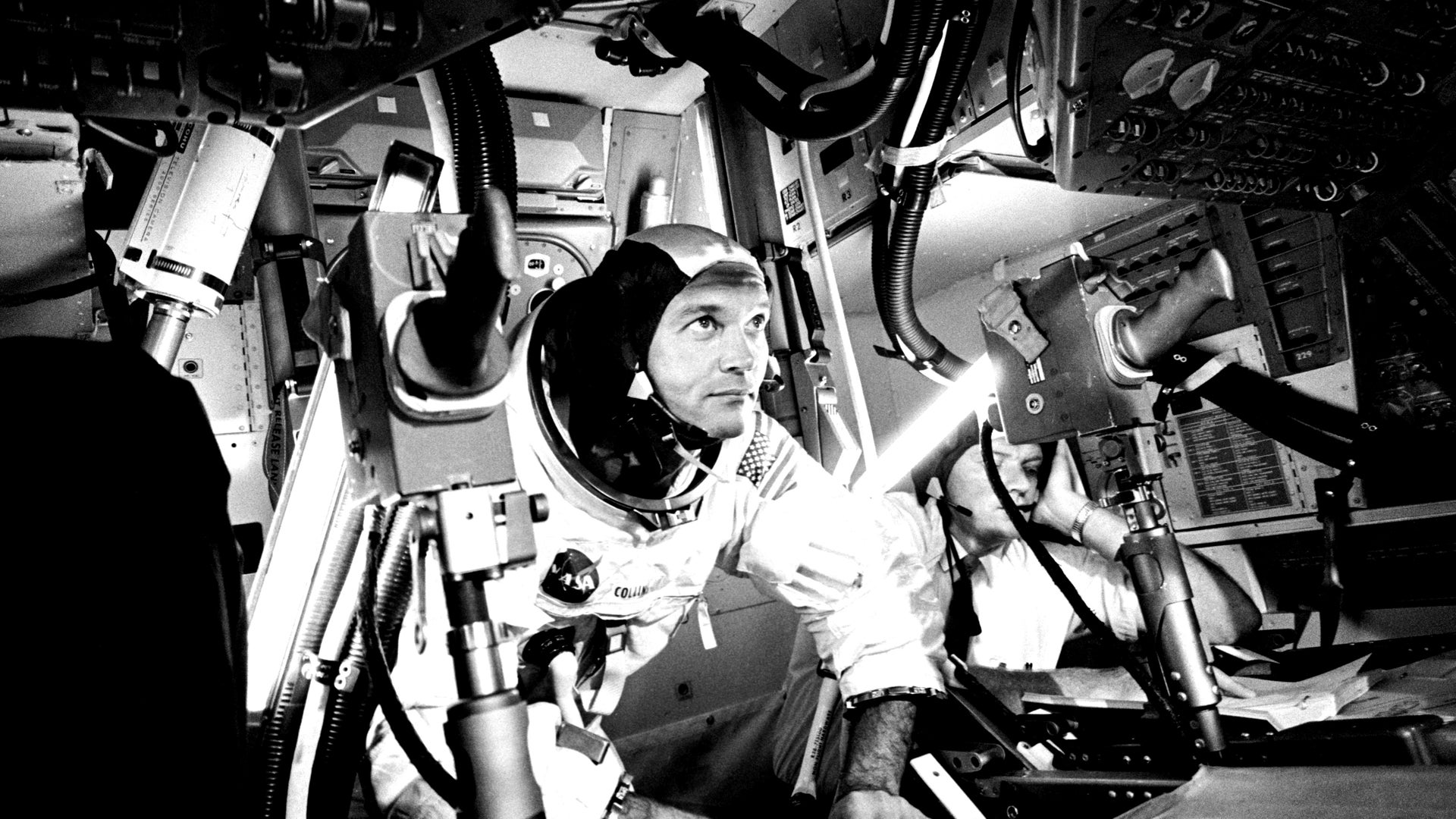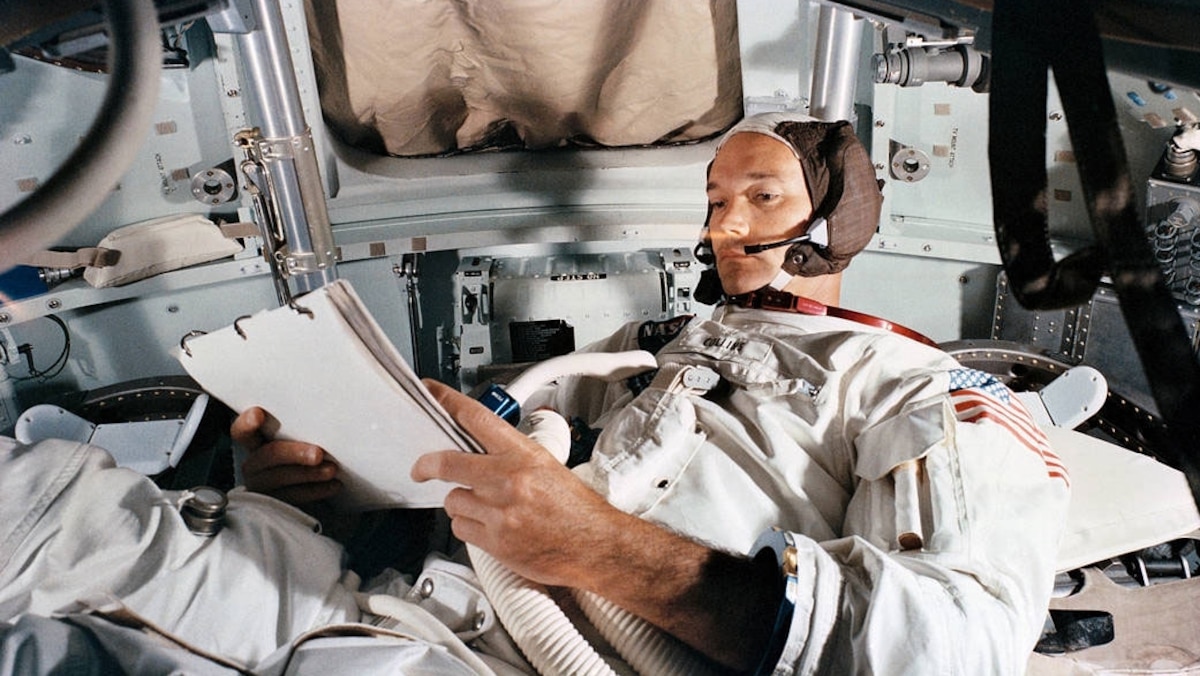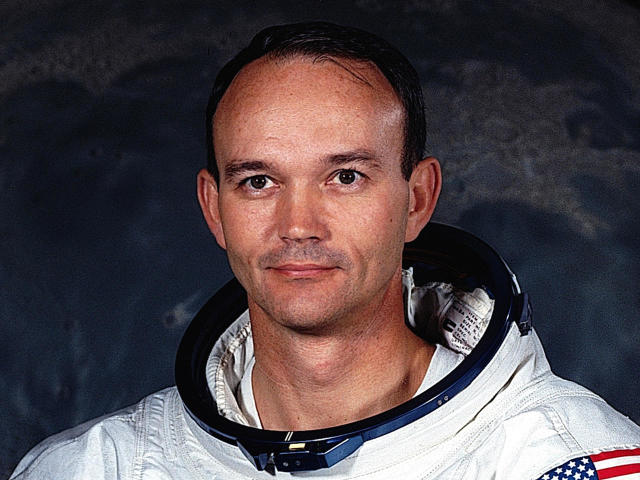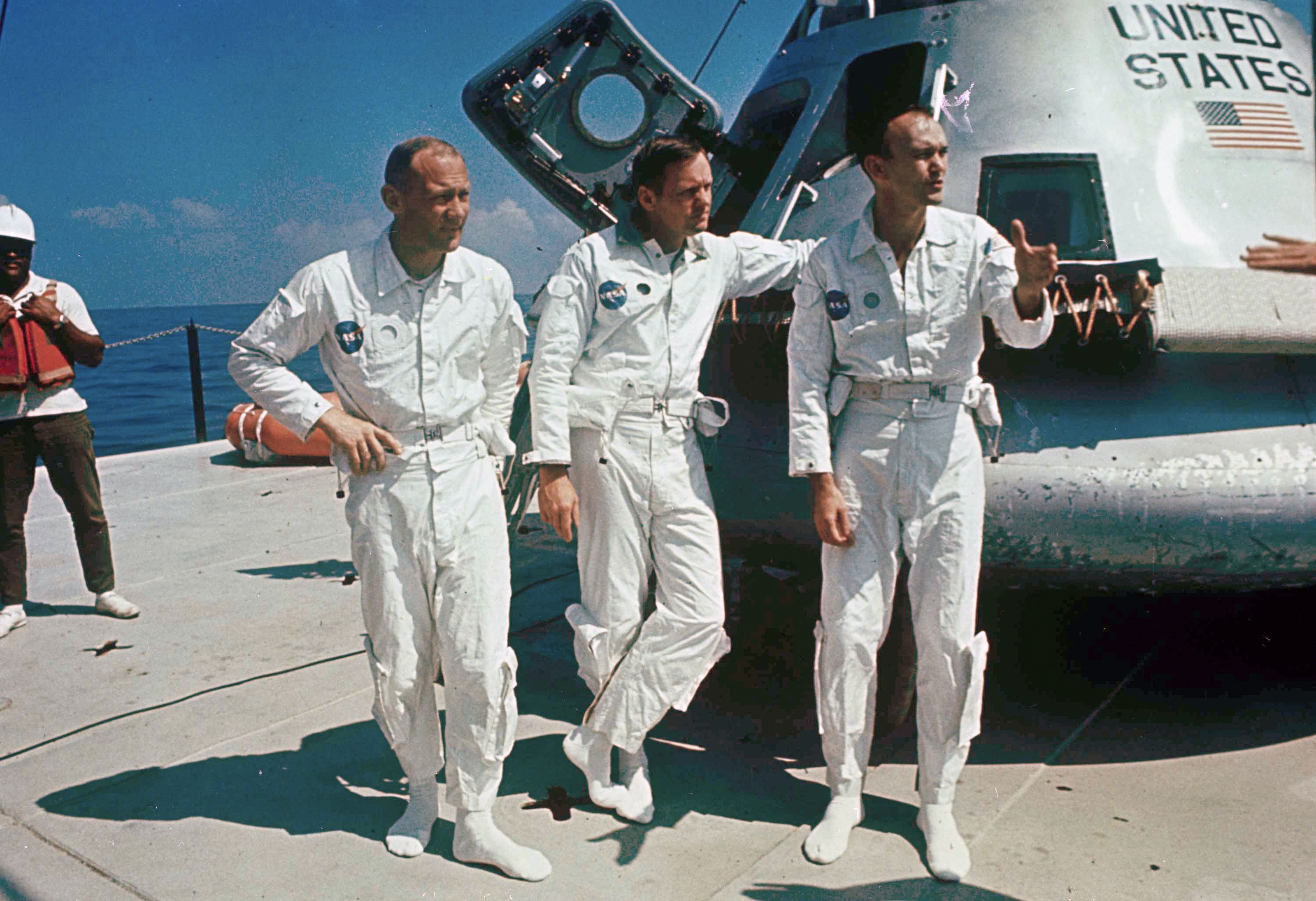The Untold Truth of Apollo 11’s Michael Collins: Why This Legendary Astronaut Chose to Stay Silent About His Lunar Experience Until His Death!

Michael Collins was not just another astronaut; he was a pivotal figure in one of the most significant achievements in human history.
While Neil Armstrong and Buzz Aldrin took their historic steps on the moon’s surface, Collins remained in orbit, piloting the command module Columbia.
This role, often overlooked, was crucial for the success of the mission.
Without Collins, Armstrong and Aldrin would have been stranded on the lunar surface, their dreams of exploration cut short.
Yet, despite his critical contribution, Collins often found himself in the shadows, a forgotten man of Apollo 11.
As Collins circled the moon, he experienced a profound solitude that few can fathom.
During the moments when Columbia passed behind the far side of the moon, he was completely cut off from communication with Earth and his fellow astronauts.
In those isolated moments, he described himself as “the loneliest man alive.
” This solitude was not just a physical experience; it was an emotional one that weighed heavily on him long after the mission was over.
While Armstrong and Aldrin basked in the glory of their lunar achievement, Collins’s role was technical and less celebrated.
He was responsible for keeping the command module operational, ensuring that everything was functioning perfectly for the return of his crewmates.

The pressure he faced was immense, and he acknowledged the weight of that responsibility in later interviews.
Despite the magnitude of his role, Collins never seemed to seek the limelight.
He often expressed contentment with his place in history, viewing the mission as a team effort rather than a personal triumph.
However, as he reflected on his experiences later in life, a different narrative emerged.
Collins shared insights that revealed a deeper understanding of the mission, one shaped by his unique perspective as the only astronaut who orbited the moon without touching its surface.
His reflections were philosophical, revealing a man who grappled with the complexities of human achievement and the nature of exploration.
But the question remains: why did Collins never return to space after Apollo 11? It is a decision that has puzzled many.
With his extensive training and proven capabilities, he was an obvious candidate for future missions.
Yet, he chose to step away from the spotlight and the cosmos.
Some speculate that the solitude he experienced during his lunar orbit changed him in ways he could not articulate.
Was it the profound silence of space that led him to realize that the moon was nothing compared to the beauty of Earth? Or was there something more extraordinary that influenced his decision?
In the aftermath of Apollo 11, NASA had grand plans for future lunar exploration.
However, as the 1970s progressed, political realities shifted.

The Vietnam War drained resources, public interest waned, and NASA’s budget faced severe cuts.
Missions originally planned for Apollo 18, 19, and 20 were canceled, and the agency redirected its focus toward projects deemed more politically viable, such as the Skylab space station and the space shuttle
program.
The dream of returning to the moon seemed to fade away, leaving many to wonder if there was more behind this abrupt halt than mere budgetary constraints.
Insiders hinted at a deeper reason for NASA’s retreat from lunar exploration.
Speculation arose that the astronauts encountered phenomena or observations on the moon that were never disclosed to the public.
Some Apollo astronauts reported seeing strange lights or unusual reflections near craters, leading to whispers of secrets that NASA was reluctant to share.
Collins, while not on the surface, had a unique vantage point in lunar orbit.
His writings reflect a man who saw things that he chose not to discuss publicly, suggesting a level of restraint that raises eyebrows.
As Collins approached the end of his life, he began to open up about his experiences during Apollo 11.
Family members reported that he became more candid about certain memories and observations he had kept to himself for decades.
Among these revelations was a recollection of seeing what he described as shadows and pyramid-like structures near lunar craters.
Initially dismissing them as tricks of light, he later noted the same formations on repeated orbits.

This admission was significant, as it suggested that Collins had witnessed something that did not conform to the natural landscape of the moon.
Collins’s decision to remain silent about these observations during debriefings was rooted in his desire to maintain his credibility and protect the integrity of the mission.
He feared that his claims would be dismissed or classified, jeopardizing his career and the accomplishments of Apollo 11.
However, in his final months, he seemed less guarded, sharing these thoughts with his family as if the burden of secrecy no longer served a purpose.
This newfound openness aligns with the broader narrative of secrecy that has surrounded the Apollo program.
From the beginning, there were whispers that not all was as it seemed.
Some astronauts hinted at experiences that hinted at more than just a scientific mission.
Reports of odd shapes and reflections seen by various Apollo crews fueled speculation about what might have been encountered during those historic flights.
The possibility that astronauts returned with materials or observations not included in official records adds another layer of intrigue to the Apollo legacy.
The aftermath of the Apollo missions left many questions unanswered.
Why did the United States, after achieving such monumental success, retreat from the moon? Officially, NASA cited budgetary constraints and shifting priorities.
However, for many, this explanation feels inadequate.
The sudden cessation of lunar exploration raises questions about what was truly discovered during those missions and why it was deemed too sensitive to pursue further.
In recent years, discussions about the Apollo program have reignited, particularly regarding what astronauts might have seen or experienced during their lunar missions.
Theories abound, ranging from encounters with extraterrestrial life to the discovery of artificial structures on the moon.

While mainstream scientists often dismiss these claims as unfounded, the persistent nature of such theories speaks to a deep-seated curiosity about what lies beyond our understanding.
As we reflect on Michael Collins’s legacy, we are reminded that he was more than just the third astronaut of Apollo 11.
He was a man who experienced the profound solitude of space and witnessed things that may never be fully understood.
His decision never to return to space raises unsettling questions about what he saw and what it meant for humanity’s exploration of the cosmos.
In the end, Michael Collins’s story is a testament to the complexities of human exploration.
It serves as a reminder that even in our greatest achievements, there may be secrets that remain hidden, waiting for the right moment to be revealed.
As we continue to explore the mysteries of our universe, the questions surrounding Apollo 11 and its astronauts linger, inviting us to ponder what we may never truly know.
What do you think? Were there secrets kept from the public? Share your thoughts in the comments below.
